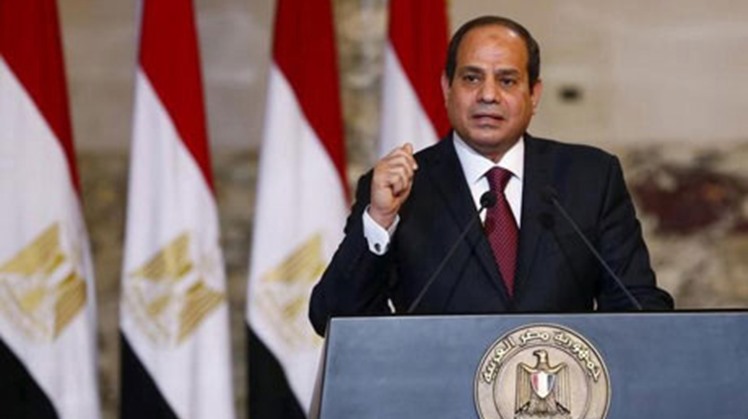CAIRO, 6 March 2023: Africa, which comprises 71 percent of the world's least developed countries, faces many development challenges related to food security primarily due to the geopolitical crisis facing Eastern Europe, said Minister of International Cooperation Rania Al-Mashat in her speech delivered on behalf of President Abdel-Fattah El-Sisi on Monday.
Many countries are unable to achieve self-sufficiency in basic goods and balance supply chains as a result of the conflict, she added at the Fifth United Nations Conference on the Least Developed Countries, held in Doha, Qatar, from 5 to 9 March, according to Ahram Online.
World leaders, representatives of the private sector, civil society, parliamentarians and youth are participating in the conference to bring forward new ideas, obtain new commitments of support, and stimulate the fulfillment of the commitments agreed through the Doha Programme of Action.
The conference is expected to announce initiatives that will help address the challenges of the least developed countries.
In her opening remarks, Al-Mashat expressed the appreciation of President El-Sisi to Sheikh Tamim bin Hamad Al Thani, crown prince of Qatar and chairperson of the fifth edition of the conference, President Lazarus Chakwera, president of the Republic of Malawi and chairperson of the Least Developed Countries Group, and António Guterres, secretary-general of the United Nations, for convening this edition of the conference, which is one of the most important international forums and platforms that monitor the challenges faced by the least developed countries.
The conference also focuses on the international community's efforts to build international and regional partnerships to address these challenges and find solutions that promote the achievement of sustainable development in those countries.
Al-Mashat said that Egypt has been keen to launch a national food and nutrition strategy to achieve security in this regard.
She emphasised Guterres' role to place the UN and its agencies at the forefront of helping developing and least developed countries address their development challenges, to achieve the Sustainable Development Goals (SDGs) and to ensure that no one is left behind, in accordance with the principles of the UN General Charter.
El-Sisi's speech shed light on the health, economic, and social damages resulting from successive global crises. Addressing the economic, social, and environmental challenges and building on regional and international partnerships are necessary to find sustainable solutions to the crises facing developing countries, Al-Mashat said on behalf of the president.
The speech highlighted Egypt's chairmanship of the current session of Steering the African Union Assembly on AUDA-NEPAD during 2023-2025, which is meant to strengthen cooperation efforts with African countries through a set of specific objectives.
These objectives include intensifying efforts to mobilise financing resources in areas of priority for the continent, including infrastructure development in order to achieve the goals of the African Development Agenda 2036, especially mobilising resources for 69 projects until 2023, including the Lake Victoria project and the Cairo-Cape Town Road.
They also include achieving industrial transformation and building on the outputs of the extraordinary Africa Summit held in Miami last November, and developing continental value chains.
Another goal is accelerating the realisation of the aspirations targeted by the Continental Free Trade Agreement, while supporting African countries to benefit from the opportunities that the agreement will provide for integration into the global economy and the jobs created, especially for youth and women.
The objectives include emphasising the participation of African countries for their expertise in the field of infrastructure. Egypt has contributed to the implementation of many vital projects in Africa, such as the Julius Nyerere Dam in Tanzania.
The speech asserted that climate change and natural disasters would remain important for discussion in the international and regional forums because of the impacts they impose on natural resources and the threat to human life.
It also highlighted Egypt's role during its presidency of the COP27 Climate Change Conference.
Al-Mashat said Egypt has been keen to establish an innovative model for developing and least developed countries to adapt to climate change through mitigation and adaptation projects, such as the Decent Life initiative, a presidential project meant to develop the countryside, eradicate poverty in Egyptian villages, and provide high-quality basic services.
The speech underpinned the UN efforts to share experiences as well as national and international experiences within the framework of cooperation with the UN Sustainable Development Cooperation Framework for 2023-2027 through investing in human capital, promoting job creation, supporting the transition to a green economy, developing health and education sectors, strengthening national monitoring and evaluation systems, and localising sustainable development goals.
Al-Mashat said Egypt looks forward to see the achievements of the Doha Programme of Action for the least developed countries.
President El-Sisi's speech concluded by asserting the great importance of effective multilateral development work, which is a lifeline for many developing and least developed countries in light of the economic risks and challenges the world is facing.
 Mon, Mar. 6, 2023
Mon, Mar. 6, 2023